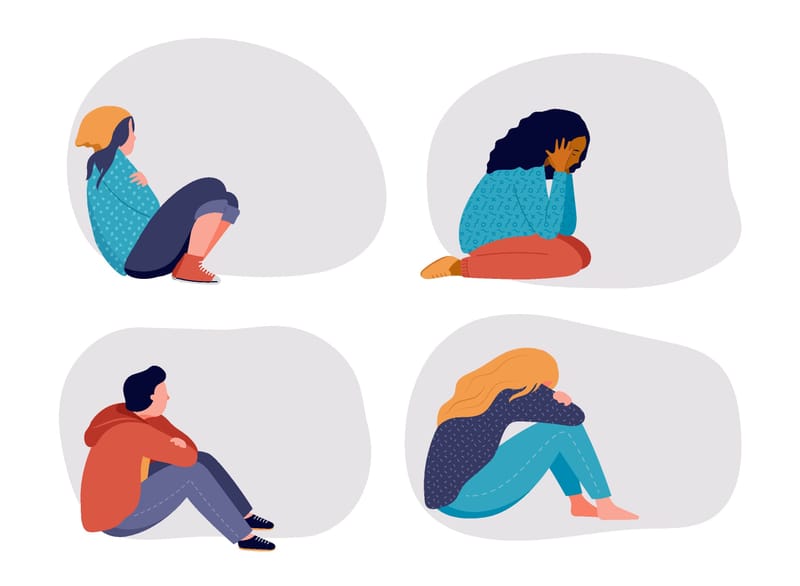
The ongoing COVID-19 pandemic poses an unprecedented crisis, and has caused global disruption across all sectors.
While we often examine how COVID-19 has impacted on state governance, the pandemic has also allowed non-state armed groups such as ISIS to leverage the crisis to their advantage.
In recent weeks, we've seen violent extremist groups respond to the pandemic by ramping up online propaganda messages directed towards existing followers and potential recruits.
Leveraging in Latin America
Throughout Latin America, non-state armed groups and drug-trafficking organisations have found themselves in the position where they've had to respond to – or leverage – the crisis.
In Brazil, various favelas are receiving orders from both drug-trafficking organisations and militias who are adopting state-like functions in order to impose quarantine measures. For example, the Red Command (Comando Vermelho, CV) has begun imposing curfews on citizens residing in the favela, cancelling weekend events such as baile funk – “Brazilian funk” – parties, and threatening that those who are caught on the street after 8pm will soon “learn how to respect others”.
It's also urged citizens to wash their hands, and has started handing out basic care packages, including soap and sanitiser.
In Colombia, the National Liberation Army (the ELN) ordered a month-long ceasefire from 1 April until 30 April, stating that this was a “humanitarian gesture” for the Colombian population, who are “suffering from the devastation of coronavirus”.
The insurgency called on President Duque to meet the ELN’s delegation in Havana to discuss a temporary, bilateral ceasefire, and leveraged the crisis caused by the pandemic as an opportunity to resume peace talks.
The ISIS experience
Similarly, the Islamic State (ISIS) has managed to take advantage of the ongoing pandemic in various ways. For instance, the group capitalised on this global crisis through demonstrating "government skills" by continuously updating its followers on the COVID-19 outbreak since the beginning.
It also provided health and travel information in its publication Al-Naba. This included discouragements to travel to high-risk areas, as well as hygiene recommendations, referencing the Qur’an and hadiths rather than the WHO.
ISIS also discredited governments, arguing they've suppressed information about coronavirus infections, and presented itself as a capable government, which in turn may foster recruitment. Thus, ISIS is demonstrating "leadership skills" in a global pandemic, and is simultaneously framing the pandemic as punishment and divine retribution against "infidels" (Taliban and Al Qaeda argue the same).

Moreover, ISIS might benefit from the pandemic due to unguarded prisons and prison riots, such as in the Hasakah prison on 29 March, where many male prisoners formerly living in Baghouz are detained. In the potential case that the group will be hit by the virus itself, it has taken precautions through arguing that people who die from the virus will be considered martyrs.
Women and children living under such groups’ proto-state authority have also been disproportionately affected. For instance, on 12 March, ISIS reported that the pandemic reached the camps in northeast Syria. Women and children have been living in inhumane conditions even since before the outbreak, but this pandemic has worsened their living situation, resulting in poor access to sanitation, clean water and food, as well as medical services, let alone COVID-19 test kits.
While some groups have leveraged the pandemic in order to enhance perceptions of their organisational legitimacy, others have shifted strategy in order to ramp up online propaganda activities.
Unsurprisingly, widespread infections of COVID-19 would have devastating consequences, although preventive measures are taken, as well as field hospitals installed. Yet, Turkish military involvement in the region, as well as the lack of virus testing equipment, worsens the situation in these camps.
Additionally, with all governments' resources globally being directed towards fighting the pandemic, no foreign citizen will be repatriated from the camps until the pandemic is over. This leaves the Kurds sharing their scarce resources with foreigners, putting the most vulnerable even more at risk.
Closer to home
COVID-19 has also affected how governments are responding to questions pertaining to the repatriation of women and children from Syria and Iraq.
One such example is the case of Indonesia, where the pandemic was declared a few weeks after the Indonesian government announced a non-repatriation policy of Indonesian ISIS supporters living and detained in Syrian and Iraqi camps and prisons.
This has led to a halt on further policy regarding the repatriation of children from those camps, as Jakarta is now refocusing all its resources to combat the spread of the virus nationwide.
A report by IPAC on ISIS and COVID shows that pro-ISIS activity in Indonesia has reduced during the pandemic, but it hasn’t ceased. A Jamaah Ansharut Daulah (JAD) cell that supports women’s involvement in its campaign was planning attacks when Indonesian National Police raided its safe havens in Batang and Payakumbuh, and detained six members in mid-March.
JAD extremists have been taking the opportunity to justify their cause against the government, especially online, yet have no attention on the suffering of Indonesian women and children in the Al Howl and Al Roj camps during this outbreak.
Like other extremist groups, JAD’s online recruitment strategy has the potential to be more successful now, where most people are self-isolating at home and spend much of their time online.
With financial constraints and never-ending household duties caused by the COVID-19 pandemic, concerns have been raised that Indonesian women are more prone to mental stress and online forums/chats, especially religious-related forums, which are the only places where they can seek solace.
Opportunities for extremist groups
In addition, the recent rules of physical distancing in the form of "work from home" and "learning from home" in Indonesia have the potential to increase stress levels in the family environment, which can trigger domestic violence towards women. Extremist groups can take this opportunity to recruit women on the basis of sympathy and solidarity.
By drawing on international examples, it's clear that non-state armed groups have had to adapt in various capacities to the ongoing COVID crisis.
To different degrees, such organisations have taken on state-like functions, enforced quarantine measures, and delivered basic supplies vis-à-vis the state. While some groups have leveraged the pandemic in order to enhance perceptions of their organisational legitimacy, others have shifted strategy in order to ramp up online propaganda activities.
With government focus currently firmly directed towards dealing with COVID-19, it's important that the pandemic doesn't distract from advancing in multiple policy spheres, including countering terrorism and violent extremism.





